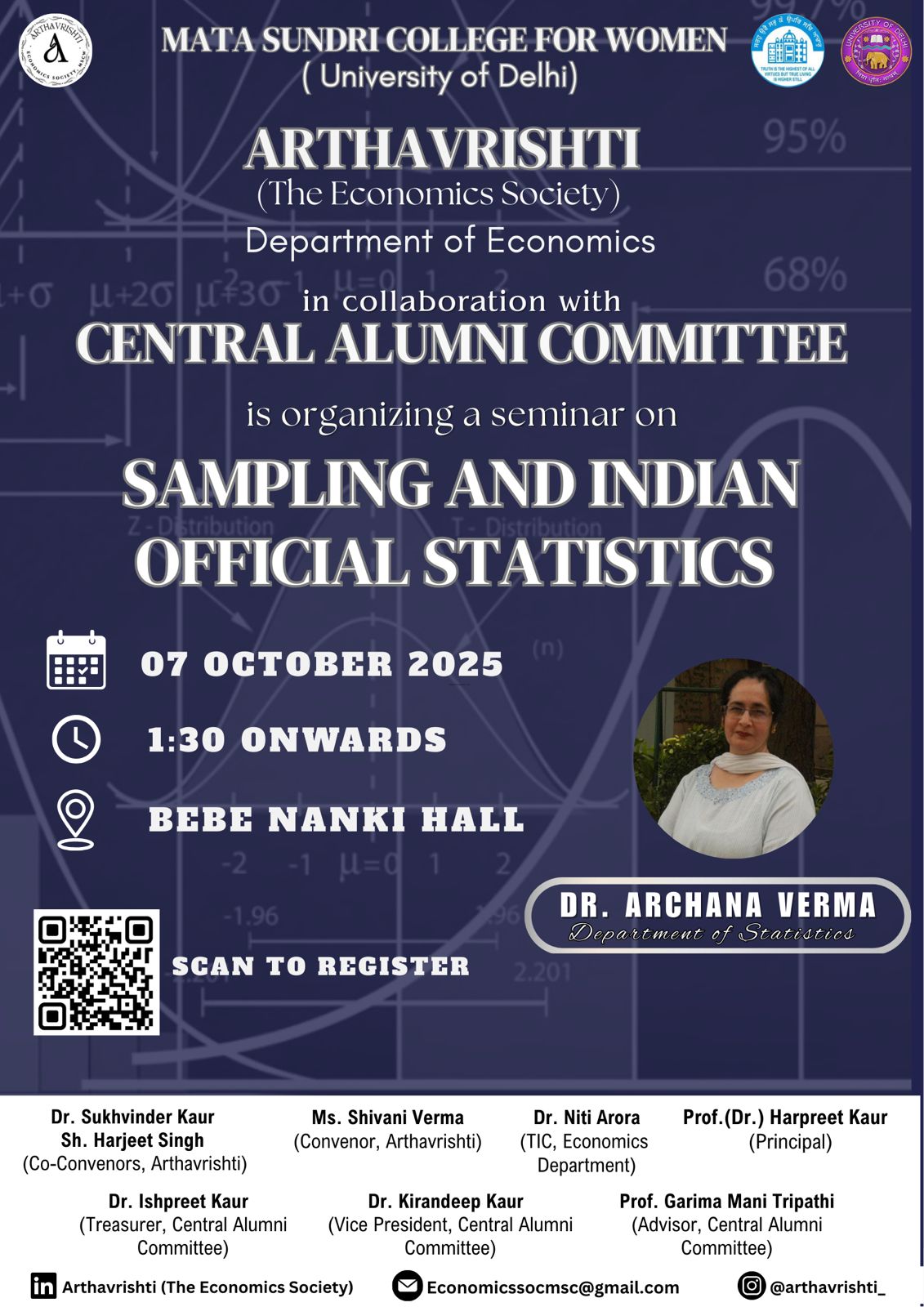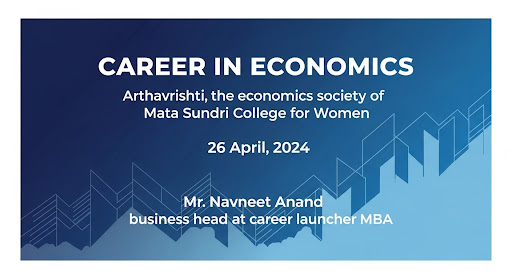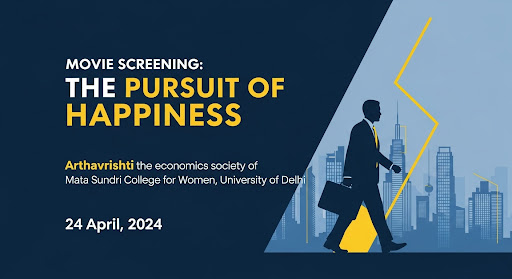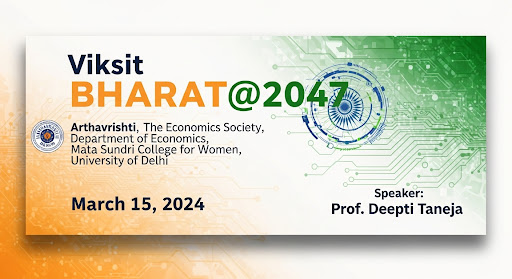Arthavrishti, the Economics Society of the Department of Economics at Mata Sundri College for Women, is a dynamic platform that brings the subject to life beyond textbooks and numbers. The society is dedicated to making economics accessible, engaging, and relevant to everyday experiences.
Arthavrishti provides students with opportunities to explore real-world economic and business issues through a variety of interactive formats. From panel discussions and debates to competitions, webinars, and seminars, the society encourages critical thinking and meaningful dialogue on contemporary topics. By blending academic inquiry with practical engagement, Arthavrishti helps students develop a deeper understanding of economic concepts and their applications.
The society fosters analytical thinking, communication skills, and a broader perspective—essential qualities in today’s fast-evolving economic landscape. Through its activities, Arthavrishti aims to nurture informed, confident individuals who are prepared to contribute thoughtfully to academic, professional, and policy-oriented spaces.
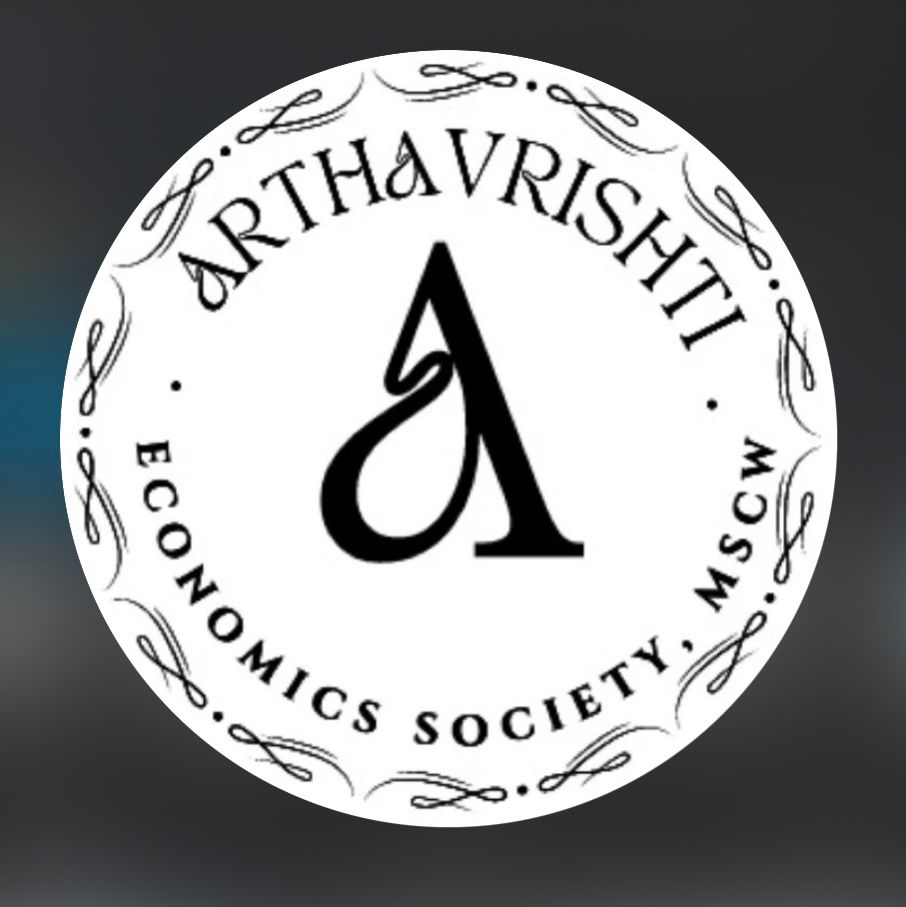


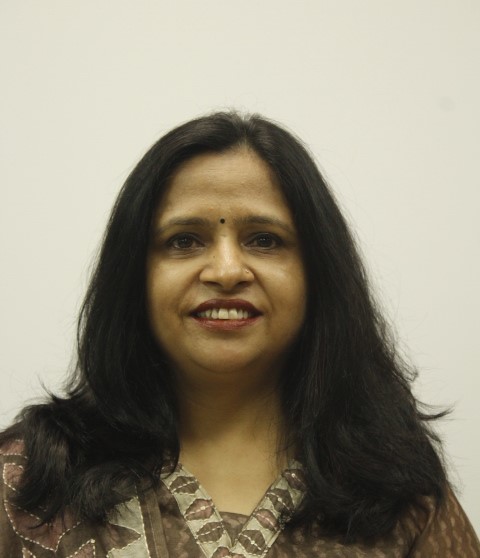
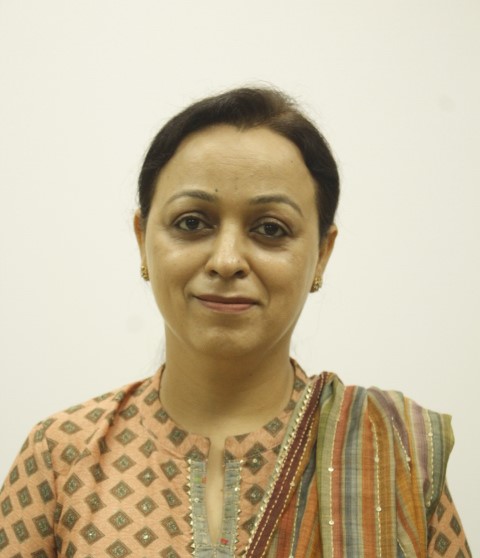
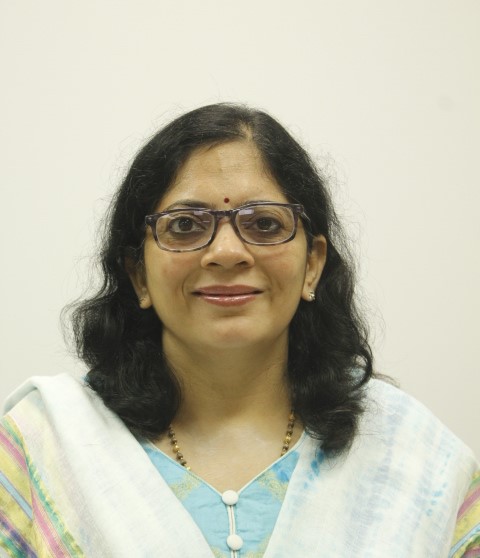

Arthamanthan - The Economics Conclave is the collaborating academic fest of Department of Economics,...
View MoreBusiness event competition -Apitching event that provides undergraduate students...
View More